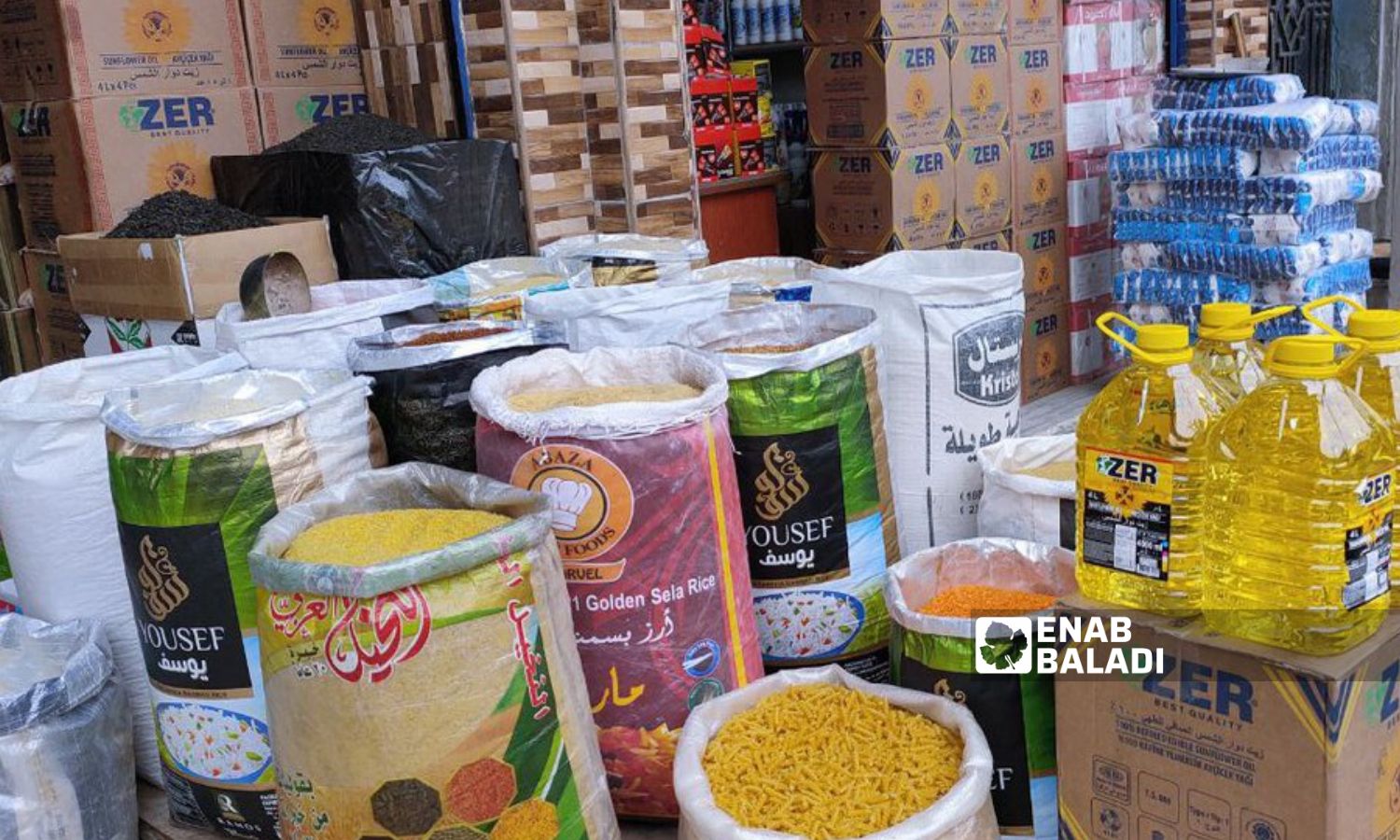



Enab Baladi – Majd al-Salem
Several towns and villages in the northeastern province of al-Hasakah witnessed individual and collective initiatives to help the people during the month of Ramadan to reduce the harsh economic and living conditions.
Initiatives represented in reducing the prices of food and medical items after the prices of basic commodities and materials, such as vegetables and meat, increased in the city’s markets, some of which have doubled.
Shaykhmus, 45, took the initiative to prepare several “simple” food baskets at his personal expense, containing sugar, rice, pasta, and tomato paste, along with a bundle of “tourist” bread, then distributed them to the needy in an initiative he used to take during the past years, according to what he told Enab Baladi.
He added that the number of food baskets has increased over the past years because the economic conditions have deteriorated further.
Shaykhmus pointed out that most of the wholesale stores from which he bought the materials sold them to him at reduced profits, and some sold them at cost, without profit.
For his part, Munir Mohammad, 43, from the countryside of Qamishli, with a group of his friends drivers, reduced the fare for passenger transportation between cities and towns by 1,000 Syrian pounds during the month of Ramadan.
Mohammad owns a bus to transport passengers between Qamishli and its southern countryside, and he told Enab Baladi that hundreds benefit from this initiative daily.
A number of people in the city of Qamishli distributed one kilogram of minced meat or one chicken per family at the beginning of the month of Ramadan, accompanied by a reduction in the price of chicken shops.
The price of one kilogram of live chicken reached 14,500 Syrian pounds, and a kilogram of minced meat reached 50,000 Syrian pounds.
The most desirable initiative among the residents of the region was related to the health aspect of selling medicines or providing medical services at a reduced price.
Imad al-Ahmad, the owner of Jazaa Pharmacy in the southeastern countryside of Qamishli, announced an initiative to sell medicines that are used continuously, especially by elderly people with diabetes, blood pressure diseases, heart and asthma diseases, at cost throughout the month of Ramadan.
In an interview with Enab Baladi, al-Ahmad said that the decrease in the prices of advertised medicines may reach 40%, which is “the profit margin of the pharmacist.”
A number of doctors in Qamishli, Ma’badah, and al-Hasakah, with various specialties, such as internal medicine, gynecology, and children, announced a reduction in examination fees from 20,000 to 5,000 Syrian pounds throughout the month of Ramadan.
The prices of vegetables increased with the beginning of the month of Ramadan, as the price of one kilogram of potatoes reached 3,500 pounds, and 7,000 for cucumbers, and the prices of tomatoes ranged between 5,000 and 6,000 pounds.
On March 18, the bakeries raised the price of a bundle of “tourist” bread, consisting of seven loaves of 600 grams, from 2,000 to 2,500 Syrian pounds, without an official decision to raise the price by the Autonomous Administration of North and East Syria (AANES).
Most of the people abandoned Ramadan eating rituals that they used to in the first days of the month, most notably meat and chicken, and some of them limited themselves to buying small quantities of the material or pieces of it in the case of buying chicken.
Last February, AANES issued a decision to stop the export of livestock for a period of five days after their prices witnessed a significant increase at that time.
The text of the decision stipulates stopping the export of sheep, calves, and cows outside the Autonomous Administration areas of control, while the content of this decision does not apply to the livestock trade (transit).
According to what Enab Baladi monitored, the short duration of the ban (five days) sparked criticism among social media users, who commented on the decision that it was “meaningless” and that it was not sufficient to reduce the price of red meat, and that the period should be at least until the beginning of the month of Ramadan so that there is an effect to the decision.
The Syrian currency in al-Hasakah recorded a price of 7,670 pounds against one dollar for purchase and 7,730 for sale, according to the “Pound Today” website, until the end of last March.
if you think the article contain wrong information or you have additional details Send Correction